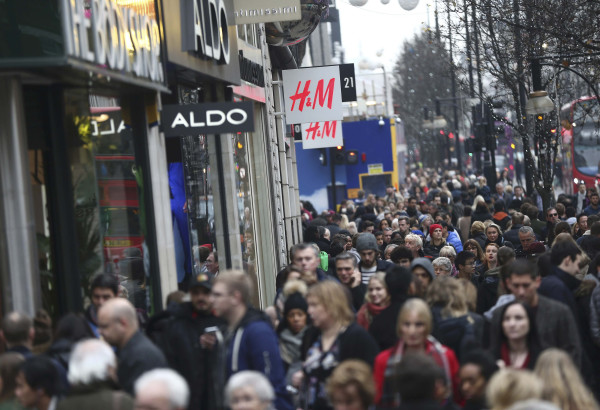

Savers could have as much as £9,853 in additional annual income in retirement just by cutting back on ‘little luxuries’, new research from Scottish Widows shows.
The provider's calculations are based on a 22-year-old planning to retire at 68, and putting £124 a month into a pension with a matching contribution from their employer.
On average, individuals spend £124 per month on every-day luxuries, including ordering takeaway meals, taking taxis rather than public transport and buying clothes that are never or rarely worn.
At the same time, almost a third (32 per cent) of people said they simply cannot afford to save any more than they already do.
According to the research, most people underestimate how much they spend on every day's luxuries by £74 a month.
One in nine (12 per cent) people admit to not tracking their incidental spending at all and having no idea how much they could be splashing out on non-essentials.
Luxury purchase | Average monthly expenditure per UK adult | Average annual expenditure per UK adult | Difference cutting this out could make every year in retirement if invested in a pension |
Buying equipment for hobbies not kept up | £2.18 | £26.19 | £148 |
Taking public transport when you could walk | £3.78 | £45.35 | £222 |
Ordering a taxi when you could take public transport | £4.25 | £50.98 | £296 |
Buying a hot drink from a coffee shop | £6.95 | £83.41 | £444 |
Buying clothes that are never or rarely worn | £7.88 | £94.61 | £592 |
Picking up a ready meal for dinner, rather than cooking from scratch | £10.87 | £130.38 | £814 |
Buying lunch from a shop/café rather than making it at home | £11.78 | £141.35 | £888 |
Buying snacks and sweet treats | £14.81 | £177.68 | £1,109 |
Ordering a takeaway when you have food at home | £16.82 | £201.88 | £1,257 |
Nights out | £19.21 | £230.50 | £1,405 |
Eating out (e.g. dinners, lunches) | £25.74 | £308.94 | £1,849 |
Total | £124.27 | £1,491.28 | £9,853 |
The research also showed that 62 per cent of people plan to set a financial goal in 2018, whether spending less (28 per cent) or saving more (45 per cent).
A third of people spend less in January, cutting back by an average of £109.03 during the month and while 30 per cent use this money to pay off debts, only 25 per cent save some of it.
According to Robert Cochran, retirement expert at Scottish Widows, January is traditionally a time when individuals set out to improve their financial habits for the year ahead.
He said: "While it would be unrealistic to suggest we live entirely without little luxuries, there is an important message about the need to ensure untracked spending today doesn't harm our financial security tomorrow."
According to research published by the provider in June, the number of people saving adequately for retirement has stalled at 56 per cent for the third year in a row.
Mr Cochran said: "Our Retirement Report shows almost 23 million people are failing to save adequately for retirement, and so there is no time like the present to make the first step towards positive change.
"It can also help build a longer term saving habit and make a real difference to quality of life in retirement."
According to Paul Gibson, managing director of Granite Financial Planning, the conclusions drawn by this conclusion "really highlight the benefit of compounded returns".
He said: "Whilst considering whether spending is really necessary or not is a good discipline, life would be incredibly dull without a little treat now and then.
"Improving financial knowledge at an earlier age and understanding budgeting and compound interest would be a good start."
maria.espadinha@ft.com



